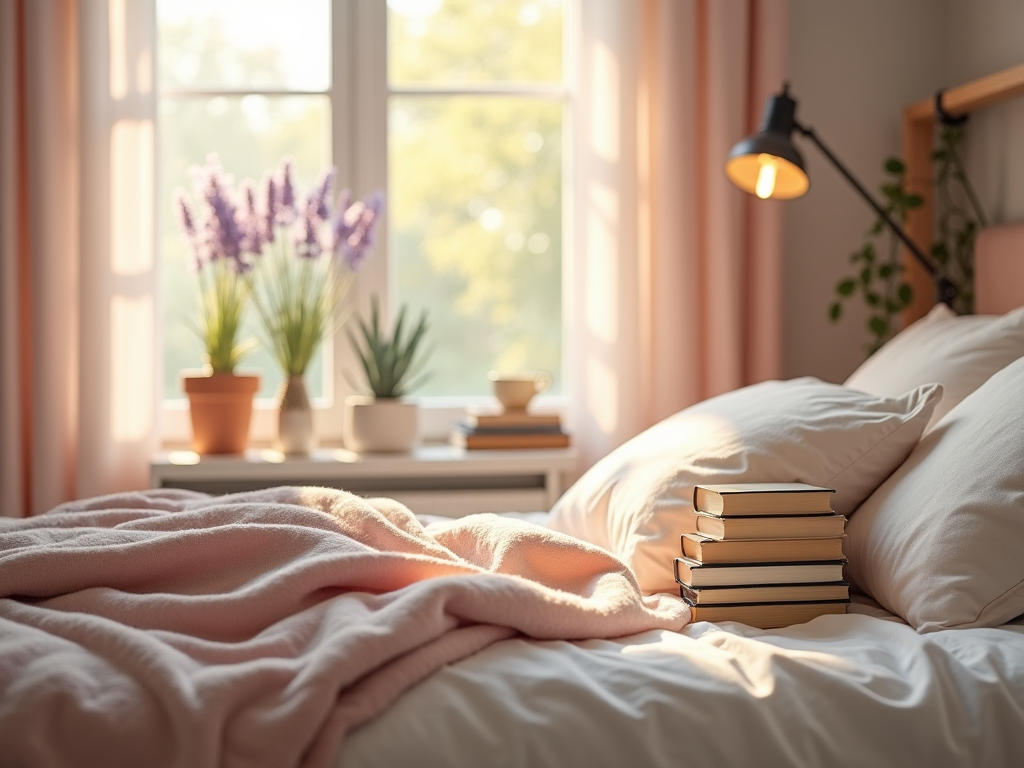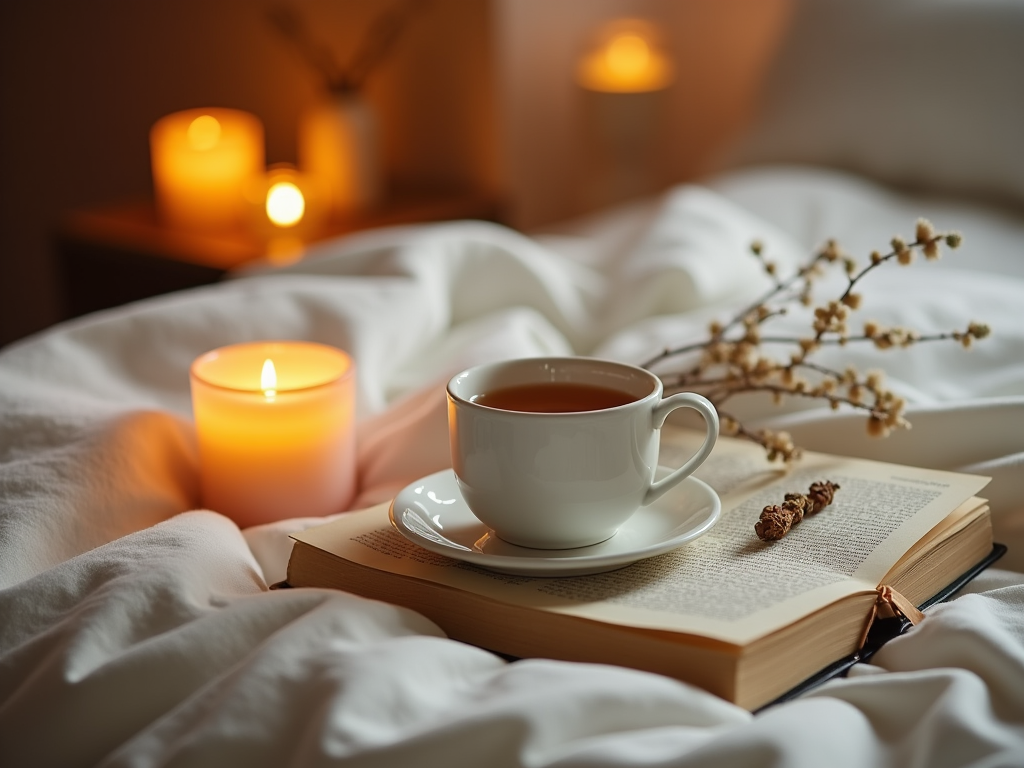
How Can I Create an Evening Ritual to Help Me Sleep Better?
Many of us lead hectic lives, often leaving us feeling drained by the time we wind down for bed. Establishing an evening ritual can provide a much-needed sanctuary for your mind and body. The premise is simple: by setting aside dedicated time each evening to pursue calming activities, you can enhance your overall sleep quality. Imagine transforming your night into a retreat filled with soothing scents, soft lighting, and practices aimed at relaxation. It’s about creating an environment that speaks to your senses and prepares you for restorative sleep. In embracing an evening ritual, you invest in better sleep and a healthier, more balanced lifestyle.
Understanding the Importance of an Evening Ritual

Establishing a consistent evening ritual can significantly impact sleep quality. By winding down properly, you signal to your body that it’s time to transition into sleep mode. Rushing through your evening can trigger stress responses that disrupt your ability to relax. When you integrate calming activities into your night, you’re not only promoting rest but also caring for your mental space. This mindfulness can make a world of difference in how easily you drift off. Over time, your body begins to associate specific rituals with sleepiness, making the journey to sleep smoother and more natural.
Key Components of an Effective Evening Ritual

An evening ritual can include various activities that promote relaxation and prepare your mind and body for a restful night’s sleep. Implementing certain key components can elevate your evening experience. Think of your ritual as a tapestry woven with different threads of activities. This tapestry can include everything from lighting a soothing candle to sipping herbal tea, which invites tranquility into your space. Below are some essential components to consider integrating into your nightly routine.
| Activity | Benefit |
|---|---|
| Reading | Promotes relaxation and distraction from daily stressors |
| Meditation | Calms the mind and enhances emotional health |
| Warm Bath | Soothes muscles and raises body temperature, promoting sleepiness |
| Gentle Yoga | Eases tension and prepares the body for sleep |
Limit Screen Time
Reducing exposure to screens in the evening can prevent disruptions to your sleep cycle. The blue light emitted from devices is notorious for hindering melatonin production, the hormone responsible for regulating sleep. Replacing screen time with more calming activities can help you establish a natural nighttime rhythm. Instead of scrolling through your phone, consider delving into a good book or practicing some gentle stretching. This simple swap can lead to profound improvements in sleep quality, easing the transition into a peaceful night. Small changes in your habits can create a more conducive environment for restorative sleep.
Create a Soothing Environment
Your bedroom should be a sanctuary tailored to promote relaxation. Consider incorporating elements that engender a restful atmosphere, such as dim lighting and comfortable bedding. Aromatherapy using calming scents like lavender or chamomile can greatly enhance your nightly experience. As you create this soothing space, think about decluttering to reduce distractions. A clean environment can also lead to a clearer mind, allowing you to embrace the calming elements of your ritual fully. An inviting sanctuary becomes an essential part of your evening ritual, setting the stage for deeper sleep.
Creating Your Personalized Evening Ritual
To create an effective evening ritual, consider a few steps to tailor it to your needs and lifestyle. Start by evaluating your current routine and taking note of activities that may disrupt your ability to unwind. Perhaps you find yourself rushing through tasks or engaging in stimulating discussions right before bed. Identifying these elements is the first step toward creating a more soothing evening experience. Next, establish a consistent schedule. Going to bed and waking up at the same time each day helps anchor your body’s internal clock. Lastly, experiment with different activities to see what resonates most with you, forming a practice that not only relaxes but also excites you about the night ahead.
As you venture into developing an evening ritual, be aware of potential pitfalls that can disrupt your efforts. Over-scheduling your evening can leave you feeling more stressed than relaxed, so it’s crucial to keep your ritual simple and manageable. Allow time for each activity to truly benefit you; trying to fit too much into a short window often leads to rushing and distraction. Additionally, pay close attention to your body’s signals. If something feels invigorating rather than calming, reassess that activity’s place in your evening wind-down. Never skip self-care, as personal time to unwind is vital to establishing a calming routine that prepares you for a good night’s sleep.
Conclusion
Creating an evening ritual tailored to your needs can significantly enhance your sleep quality. By incorporating mindful practices and avoiding common pitfalls, you can develop a routine that promotes relaxation and prepares you for a restful night. The key components you choose should resonate with your personal preferences and lifestyle, ensuring that each night feels like a serene escape. Through dedication and experimentation, you may discover the perfect mix that leads you to the restful slumber you’ve been seeking. Ultimately, your commitment to establishing an effective evening ritual lays the groundwork for a healthier, happier you.
Frequently Asked Questions
- What are some activities I can include in my evening ritual? You can include activities like reading, journaling, meditating, taking a warm bath, or gentle stretching.
- How long should my evening ritual last? Ideally, your evening ritual should last anywhere from 30 minutes to 2 hours before bed.
- Is it essential to have a consistent bedtime? Yes, consistency helps regulate your sleep-wake cycle, making it easier to fall asleep and wake up refreshed.
- Can I change my evening ritual if it’s not working? Absolutely! Don’t hesitate to adapt your ritual based on your needs and what helps you feel more relaxed.
- Are there any foods or drinks I should avoid before bed? Try to avoid caffeine, heavy meals, and alcohol close to bedtime, as they can disrupt your sleep.


